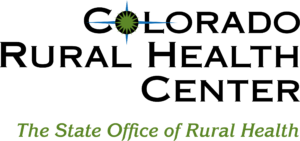Profile: Healthy Clinic Improvement Program
 Seventy-three percent of Colorado is considered rural and the average rural county sprawls over 1600 square miles. Critical Access Hospitals and Rural Health Clinics serve the nearly 700,000 residents who make their homes in the far reaches of the state. The Colorado Rural Health Center (CRHC), Colorado’s non-profit State Office of Rural Health, works with providers in these facilities to ensure that all rural Coloradans have access to comprehensive, affordable, high quality health care.
Seventy-three percent of Colorado is considered rural and the average rural county sprawls over 1600 square miles. Critical Access Hospitals and Rural Health Clinics serve the nearly 700,000 residents who make their homes in the far reaches of the state. The Colorado Rural Health Center (CRHC), Colorado’s non-profit State Office of Rural Health, works with providers in these facilities to ensure that all rural Coloradans have access to comprehensive, affordable, high quality health care.
CRHC’s Healthy Clinic Improvement Program (HCIP) program focuses specifically on clinics, using annual assessments and recommendations to improve the quality of clinic care, increase clinic efficiency, and increase clinic sustainability. Funded by the Kaiser Permanente Safety-Net Partnership, HCIP helps participating clinics by evaluating operations and determining opportunities for improvement. CRHC then works with the clinics to address the recommendations and, when possible, link the clinic to quality initiatives.
The cornerstone of HCIP is the Healthy Clinic Assessment (HCA). The goal of the HCA is to streamline operational workflow, maximize efficiency, and create a seamless and positive patient experience. Each assessment lasts between four and six hours, during which quality improvement specialists interview and observe clinic staff and compile a final report. Past assessments have identified gaps in operations including:
- Telephone Protocol
- Appointment Setting
- Check-in/Check-out
- Chart/Encounter Form Preparation
- Billing and Claim Submission
- Coding
- Accounts Receivable
Once CRHC reviews the results of the HCA, they begin customized technical assistance with the clinic and work together to create an action plan to address the gaps identified. Participating clinics overcome diverse challenges as they work to implement changes recommended by the assessment; including staff turnover, internal and external cultural barriers, as well as technical difficulties like access to broadband internet or complications with electronic medical record (EMR) systems.
Sara Leahy, Workforce and Clinic Program Manager at CRHC, describes the impact of HCIP as both quantifiable and difficult to measure. “Some of the most noticeable impacts are the improved HCA scores on each of the individual indicators as well as an increase in the capacity the clinics have to participate in external quality improvement initiatives. Less tangible results show a substantial increase in quality improvement knowledge and readiness to move their quality programs forward, although this has been a clear and successful result.”
The clinics also consider HCIP to be a valuable program and a success, as a testimonial from a participating facility’s manager demonstrates. “We were thrilled with the Healthy Clinic Assessment. It helped us identify broken systems and improve processes within our clinic. It also served as a real team-based activity. The staff were eager to participate in this project and were very pleased with the reassessment showed progress. The real winners were the patients who received better care as a result of our improved processes.”
CRHC is extremely grateful to Kaiser Permanente for supporting the HCIP initiative. Although the grant period is coming to an end soon, CRHC is working to spread the best practices learned as well as the most impactful portions of the program to more rural clinics across Colorado.
Previously published as part of CIVHC’s Spotlight on Innovation series.

